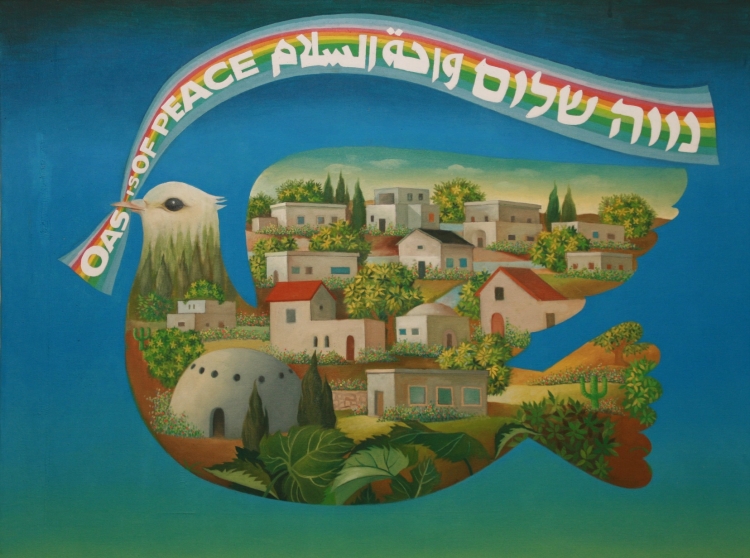The Oral History of Neve Shalom

Amia Lieblich gave an enlightening lecture on Thursday, April 20, about her research in Neve Shalom-Wahat-al-Salam. Neve Shalom is a village located midway between Jerusalem and Tel Aviv-Jaffa, established to teach and prove that Jewish and Palestinian Arab peoples can live together in harmony.
Most of the lecture revolved around the objective behind a village like Neve Shalom. Their school and community center is based off of principles of peace, political education, having an equal and just society, and a better understanding of the reality in the Middle East. Bruno Hussar envisioned a village like Neve Shalom in 1977, and since then the village has been dedicated to the pursuit of peace.
Photo Credit: Melisa UlkumenAmia Lieblich is a writer and psychologist as well as professor at the Hebrew University of Jerusalem and President of the Academic College for Society and the Arts in Israel. When asked to conduct a research project in 2010 Lieblich jumped at the opportunity, resulting in the creation of her latest novel, Against All Odds: The Story of a Binational Village. During her time in Neve Shalom, Lieblich was mainly interested in the residents' stories and narratives, rather than the "stone cold truth." She interviewed almost over 50 percent of the people there and wrote about them in her book. As she shared her findings she described that a frequent topic during the interviews was the subject's motivation to live in Neve Shalom. Interestingly, the Arabs and Jewish had different answers. For Arabs, it was to "no longer have a fear of racism and for the children to grow up in a free environment." While for the Jewish it was more for ideological reasons and to prove that it can be a normal society.
Currently there are 54 families living in Neve Shalom and exactly half of them are Arab, the other half are Jewish. Their hope to achieve their mission lies with the next generation to develop cross-national relationships amongst the children and teenagers, and to "learn to agree to disagree" and to promote a just society. Amia Lieblich's insight about Neve Shalom not only shows the complexity of belonging and identity, but it also sets an example for principles set across the globe.







